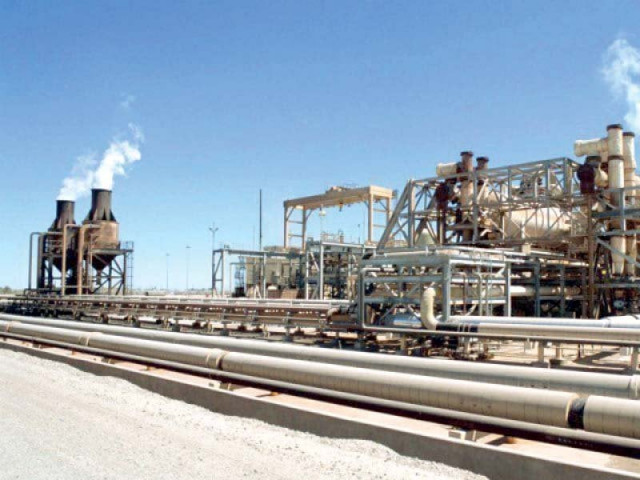Gas utilities to collect extra Rs150b after slab revision
Plan being reviewed to introduce separate tariffs for three winter months

The government has constituted an inquiry committee to look into complaints of inflated gas bills for December 2018. PHOTO: FILE
After the change in gas slabs, the gas utilities have collected revenues of Rs95 billion and they will have to collect another Rs55 billion to meet their annual revenue requirements and rein in losses.
The PTI government, after coming to power in August last year, introduced a few new consumer slabs under which gas charges more than doubled under every new slab. This is the reason consumers are receiving inflated gas bills.
However, “a plan is now under consideration to either introduce a separate tariff for three months in the winter season or revise the existing slabs in order to provide relief to domestic gas consumers,” an official said. Sources told The Express Tribune that the government had introduced new slabs to generate more revenue and after that consumer bills soared over 100% after slipping into the next slab.
“The government has raised gas prices by more than 100% for the consumers falling in each next category rather than increasing the per unit price of gas,” the official elaborated.
In a recent meeting of the Cabinet Committee on Energy, according to officials, it was informed that the people consuming 3 cubic metres of gas in a month received a bill of around Rs3,016, but it would go up to Rs8,840 on consuming 3.1 cubic metres, with increase of just 0.1 cubic metre. Similarly, on consumption of 4 cubic metres per month, the gas price was Rs11,406, but it would jump up to Rs21,884 if people consumed 4.1 cubic metres.
However, the Petroleum Division claimed in the meeting that the impact of revised gas prices on 80% of domestic consumers, which fell in lower slabs, was quite low compared to the consumers covered by higher slabs.
It was also pointed out that internationally gas prices were determined on a seasonal basis. For three winter months, separate gas tariffs were calculated at slightly higher rates whereas for the remaining nine months, when consumption was lower, the tariffs were calculated at lower rates, the meeting was told.
Cabinet members suggested a review of the gas consumption slabs in order to provide some benefit to the consumers.
The government has also constituted an inquiry committee to look into complaints of inflated gas bills for December 2018. The committee has been tasked with finding out the reasons for the high gas bills, date of meter reading, co-relation of the pressure factor, temperature factor and the gas volume consumed.
It will also conduct random verification of meter reading and sticky meter charges. Ferguson and Co is conducting an external audit with reference to the consumers falling in different slabs, gas consumption and charges for the period October-December 2018.
Published in The Express Tribune, February 22nd, 2019.
Like Business on Facebook, follow @TribuneBiz on Twitter to stay informed and join in the conversation.



















COMMENTS
Comments are moderated and generally will be posted if they are on-topic and not abusive.
For more information, please see our Comments FAQ